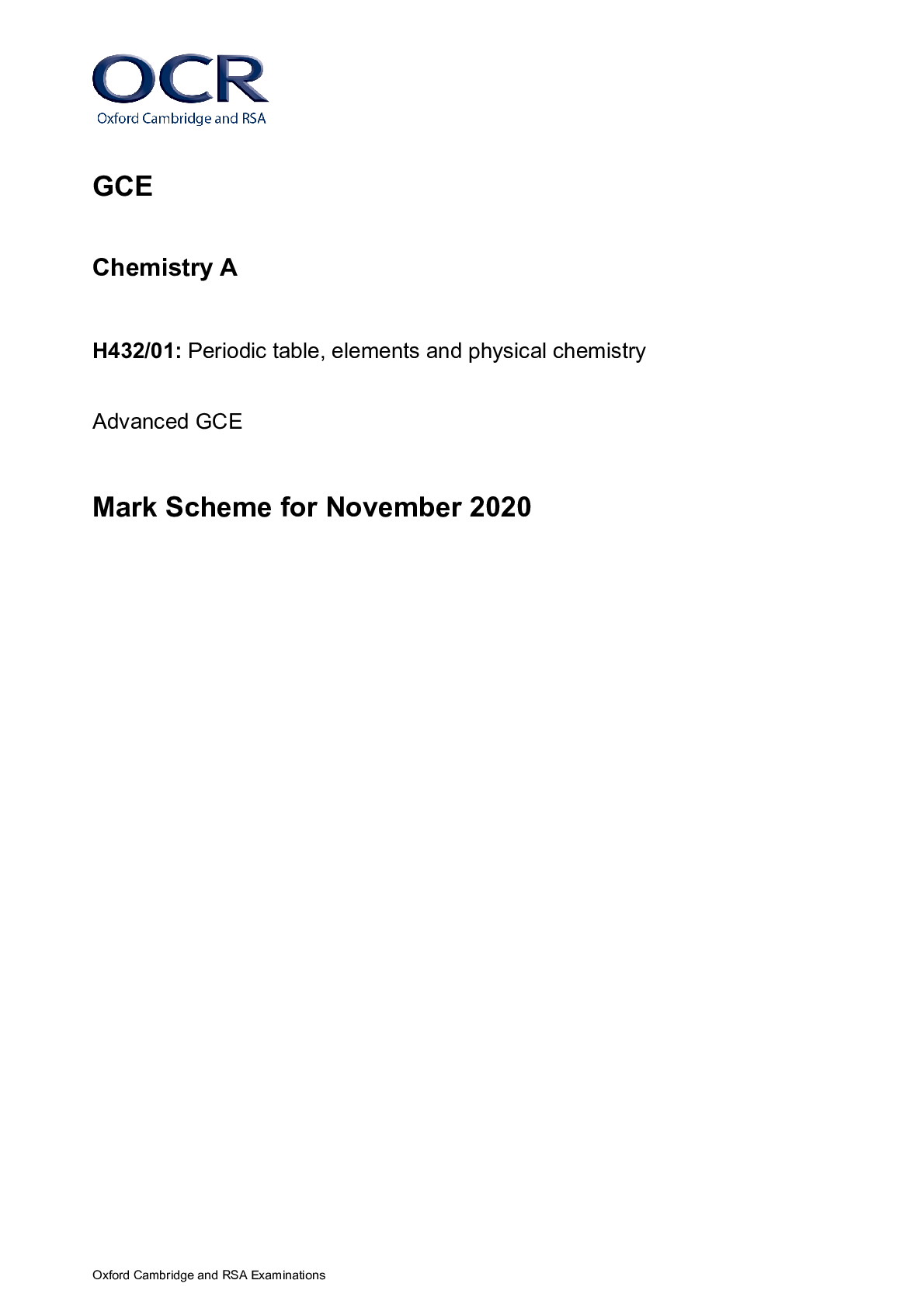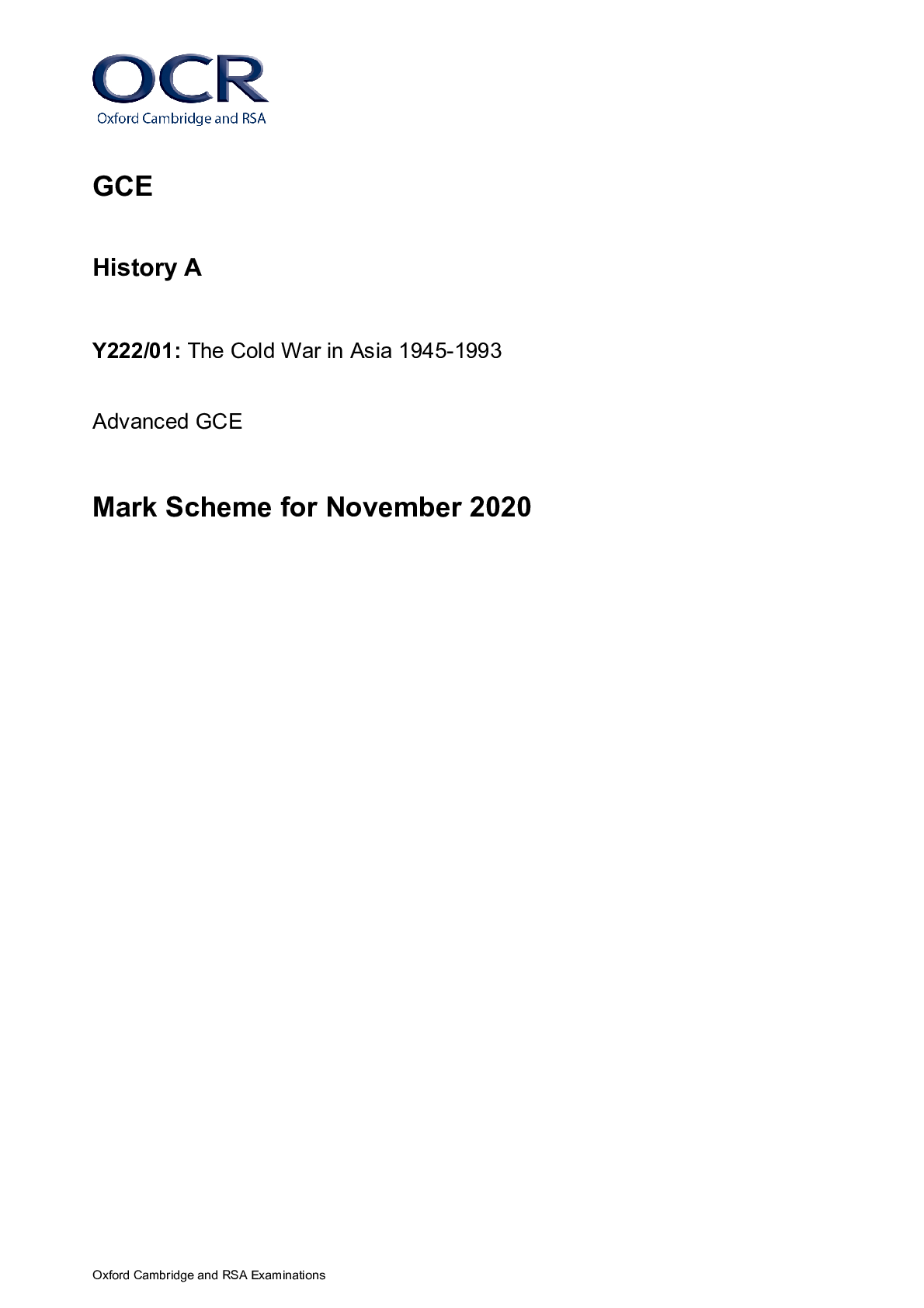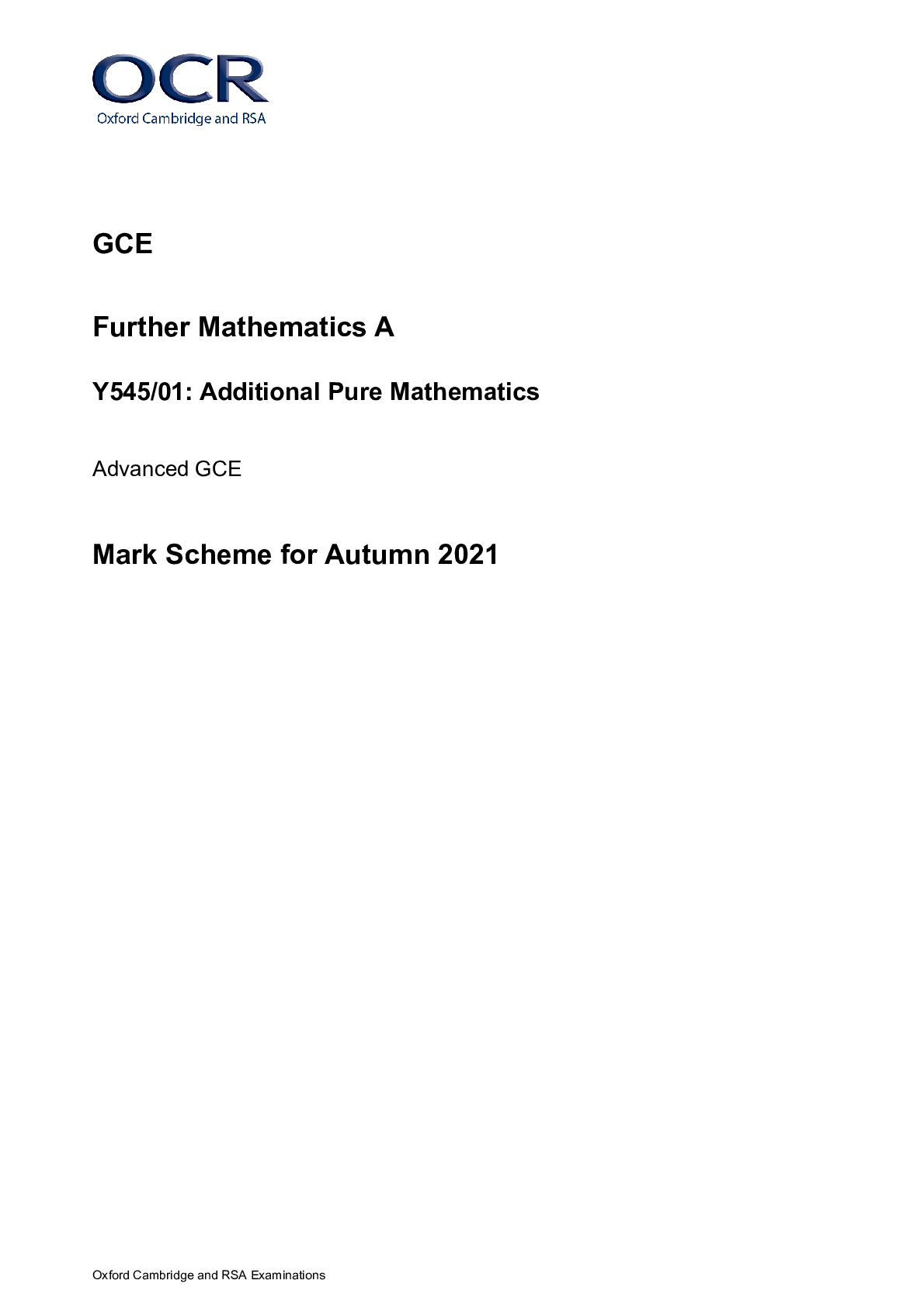History > AS Mark Scheme > GCE History A Y224/01: Apartheid and Reconciliation: South African Politics 1948-1999 Advanced GCE M (All)
GCE History A Y224/01: Apartheid and Reconciliation: South African Politics 1948-1999 Advanced GCE Mark Scheme for November 2020
Document Content and Description Below
Oxford Cambridge and RSA Examinations GCE History A Y224/01: Apartheid and Reconciliation: South African Politics 1948-1999 Advanced GCE Mark Scheme for November 2020Oxford Cambridge and RSA Exam... inations OCR (Oxford Cambridge and RSA) is a leading UK awarding body, providing a wide range of qualifications to meet the needs of candidates of all ages and abilities. OCR qualifications include AS/A Levels, Diplomas, GCSEs, Cambridge Nationals, Cambridge Technicals, Functional Skills, Key Skills, Entry Level qualifications, NVQs and vocational qualifications in areas such as IT, business, languages, teaching/training, administration and secretarial skills. It is also responsible for developing new specifications to meet national requirements and the needs of students and teachers. OCR is a not-for-profit organisation; any surplus made is invested back into the establishment to help towards the development of qualifications and support, which keep pace with the changing needs of today’s society. This mark scheme is published as an aid to teachers and students, to indicate the requirements of the examination. It shows the basis on which marks were awarded by examiners. It does not indicate the details of the discussions which took place at an examiners’ meeting before marking commenced. All examiners are instructed that alternative correct answers and unexpected approaches in candidates’ scripts must be given marks that fairly reflect the relevant knowledge and skills demonstrated. Mark schemes should be read in conjunction with the published question papers and the report on the examination. © OCR 2020Y224/01 Mark Scheme November 2020 3 Annotations Annotation Meaning of annotation Blank Page Highlight Off-page comment Assertion Analysis Evaluation Explanation Factor Illustrates/Describes Irrelevant, a significant amount of material that does not answer the question Judgement Knowledge and understanding Provenance Simple comment Unclear ViewY224/01 Mark Scheme November 2020 4 Subject Specific Marking Instructions Question Answer Mark Guidance 1 (a) Which of the following saw greater change in South Africa in the years from 1989 to 1999? i. Social conditions ii. Economic conditions Explain your answer with reference to both (i) and (ii). • In dealing with social conditions answers might consider the extent to which race relations were reformed. • Answers might consider the issue of reconciliation and unity. • Answers might consider newly emerging social problems like HIV/Aids. • In dealing with economic conditions answers might consider the Reconstruction and Development Programme and its effectiveness. • Answers might consider the introduction of GEAR and its impact. • Answers might consider that problems like unemployment, slow economic growth and a lack of international investment proved difficult to solve. 10 • No set answer is expected • Judgement must be supported by relevant and accurate material. • Only credit material relevant to change. • Answers may deal with each factor in turn, then compare them to reach a judgement, or make take a continually comparative approach. Either approach is acceptable. • Knowledge must not be credited in isolation, it should only be credited where it is used as the basis for analysis and evaluation, in line with descriptions in the levels marks scheme. 1 (b)* 'Township Unrest posed a greater threat to the Apartheid system than any other form of opposition in the years from 1978 to 1989.' How far do you agree? In arguing that township unrest was most significant, answers might consider: • The desire to make the townships ‘ungovernable’ through grassroots resistance, protest and violence. • The way that township unrest exposed the limitations to ‘Total Strategy’ and the authority of the government to impose Apartheid by force. 20 • No set answer is expected. • At higher levels candidates will focus on ‘how far’, but at Level 4 may simply list the opposition. • At Level 5 and above there will be judgement as to the relative significance. • At higher levels candidates might establish criteria against which to judge. • To be valid judgements, claims must be supported by relevant and accurate material. If not, they are assertions. • Knowledge must not be credited in isolation, it shouldY224/01 Mark Scheme November 2020 5 • The way that township unrest and the reaction of the security services undermined Botha’s programme of reforms. • The role of township unrest in increasing black resistance and opposition to Apartheid. • The loss of black, white and international support due to media coverage of the problems and the reactions of the security services. • The economic impact of the State of Emergency. In arguing that other forms of opposition were more significant, answers might consider: • The limitations to township unrest as a form of resistance, for example a great deal of black on black violence. • The significance of the UDF as a form of resistance which united black, coloured and white South Africans. • The role of the ANC and ANC leaders like Tambo and Mandela. • The role of religious leaders like Tutu. • The importance of Trade Unions. • Growing calls for reform or abolition of Apartheid from white South Africans including from within the National Party. • The importance of the international Anti-Apartheid Movement and actions such as sports boycotts. • Opposition from international leaders and organisations like the UN. only be credited where it is used as the basis for analysis and evaluation, in line with descriptions in the levels mark scheme.Y224/01 Mark Scheme November 2020 6 2 (a) Which of the following was a more significant reason for de Klerk’s reforms to the Apartheid system? i. Internal Developments within South Africa ii. International relations Explain your answer with reference to both (i) and (ii). • In dealing with internal developments answers might consider the problem of unrest and violence in the townships, which had required a State of Emergency. • Answers might consider developments in the nature and extent of resistance. • Answers might consider the serious economic problems South African was facing. • In dealing with international relations answers might consider the significance of international economic sanctions. • Answers made consider the changing geopolitical and diplomatic environment e.g. with the end of the Cold War. • Answers might consider international pressure from world leaders and international organisations like the UN. 10 • No set answer is expected • Judgement must be supported by relevant and accurate material. • Only credit material relevant to reasons for de Klerk’s reforms. • Answers may deal with each factor in turn, then compare them to reach a judgement, or make take a continually comparative approach. Either approach is acceptable. • Knowledge must not be credited in isolation, it should only be credited where it is used as the basis for analysis and evaluation, in line with descriptions in the levels marks scheme. 2. (b)* ‘There was little change to the Apartheid system in the years from 1954 to 1978.’ How far do you agree? In arguing that there was little change answers might consider: • ‘Petty Apartheid’ had already been established by 1954. • The foundations of ‘Grand Apartheid’ already existed in terms of population registration and geographical segregation as a result of the Group Areas Act (1950), Influx Control, Pass System and creation of 20 • No set answer is expected. • At higher levels candidates will focus on ‘how far’, but at Level 4 may simply list the changes. • At Level 5 and above there will be judgement as to the relative extent of change. • At higher levels candidates might establish criteria against which to judge. • To be valid judgements, claims must be supported by relevant and accurate material. If not, they are assertions. • Knowledge must not be credited in isolation, it shouldY224/01 Mark Scheme November 2020 7 Reserves. Arguably Verwoerd simply built on this. • The failure of Verwoerd to achieve his aim of encouraging Black South Africans to relocate away from cities and into the ‘homelands’. • Essential continuity in the structure of the Apartheid economy. • Lack of political change for Black South Africans. • The ideology and aims of Apartheid remained based on white supremacy and the idea of separation between the races. In arguing that there was change, answers might consider: • Verwoerd’s shift in ideology towards ‘separate development’ and in seeking a ‘tribal’ identity for Black South Africans. • The creation of Bantustans, or black ‘homelands’ as a result of the Bantu Self-Government Act of 1959, some of which were expanded by the 1970s to include townships. • The move towards ‘self-government’ and ‘independence’ in some of the homelands, a political change. • Increased social divisions created between Black South Africans through promotion of ‘tribal’ ‘homelands’ and the appointment of ‘Chiefs’ to rule. • Government resettlement programmes. • Growing poverty, unemployment and landlessness amongst Black South Africans. • Changing approaches to dealing with opposition to Apartheid. Note the focus of the question on ‘change’ (in general), not progress. only be credited where it is used as the basis for analysis and evaluation, in line with descriptions in the levels mark scheme. Note – the focus should be on changes and reforms to the Apartheid system, and extensive discussion of change to opposition should not be credited.OCR (Oxford Cambridge and RSA Examinations) The Triangle Building Shaftesbury Road Cambridge CB2 8EA [Show More]
Last updated: 1 year ago
Preview 1 out of 8 pages
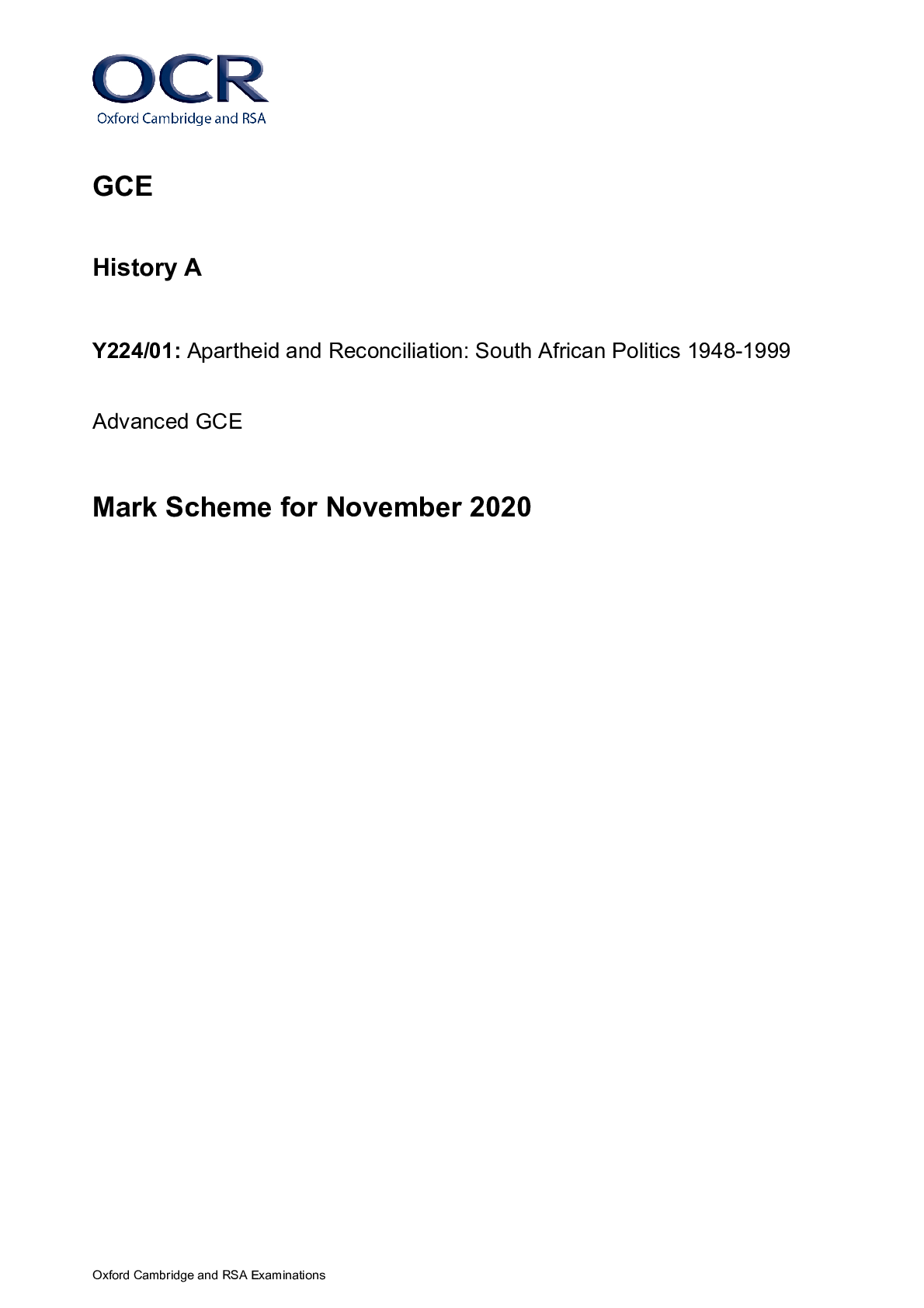
Reviews( 0 )
Document information
Connected school, study & course
About the document
Uploaded On
Oct 10, 2022
Number of pages
8
Written in
Additional information
This document has been written for:
Uploaded
Oct 10, 2022
Downloads
0
Views
37

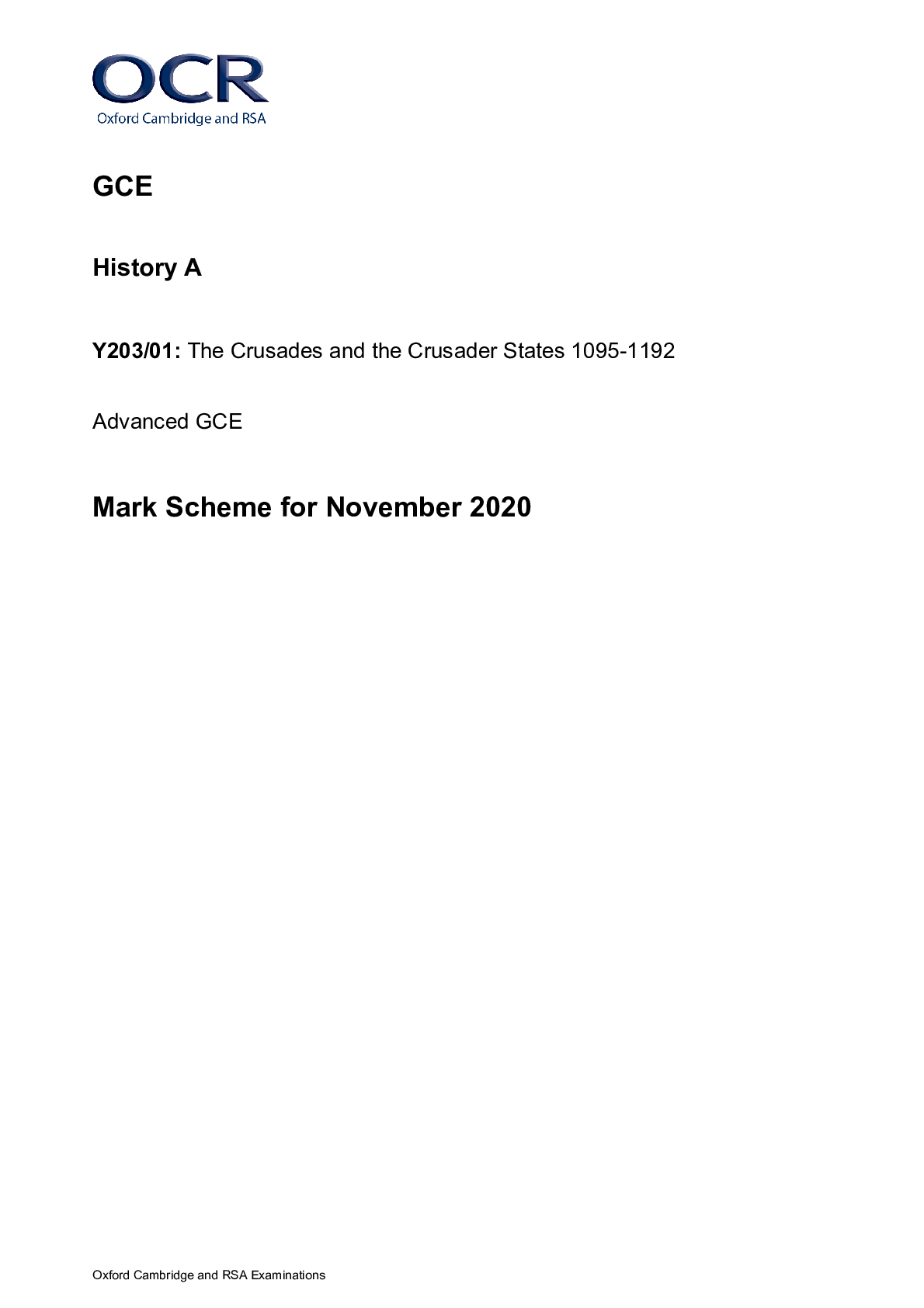


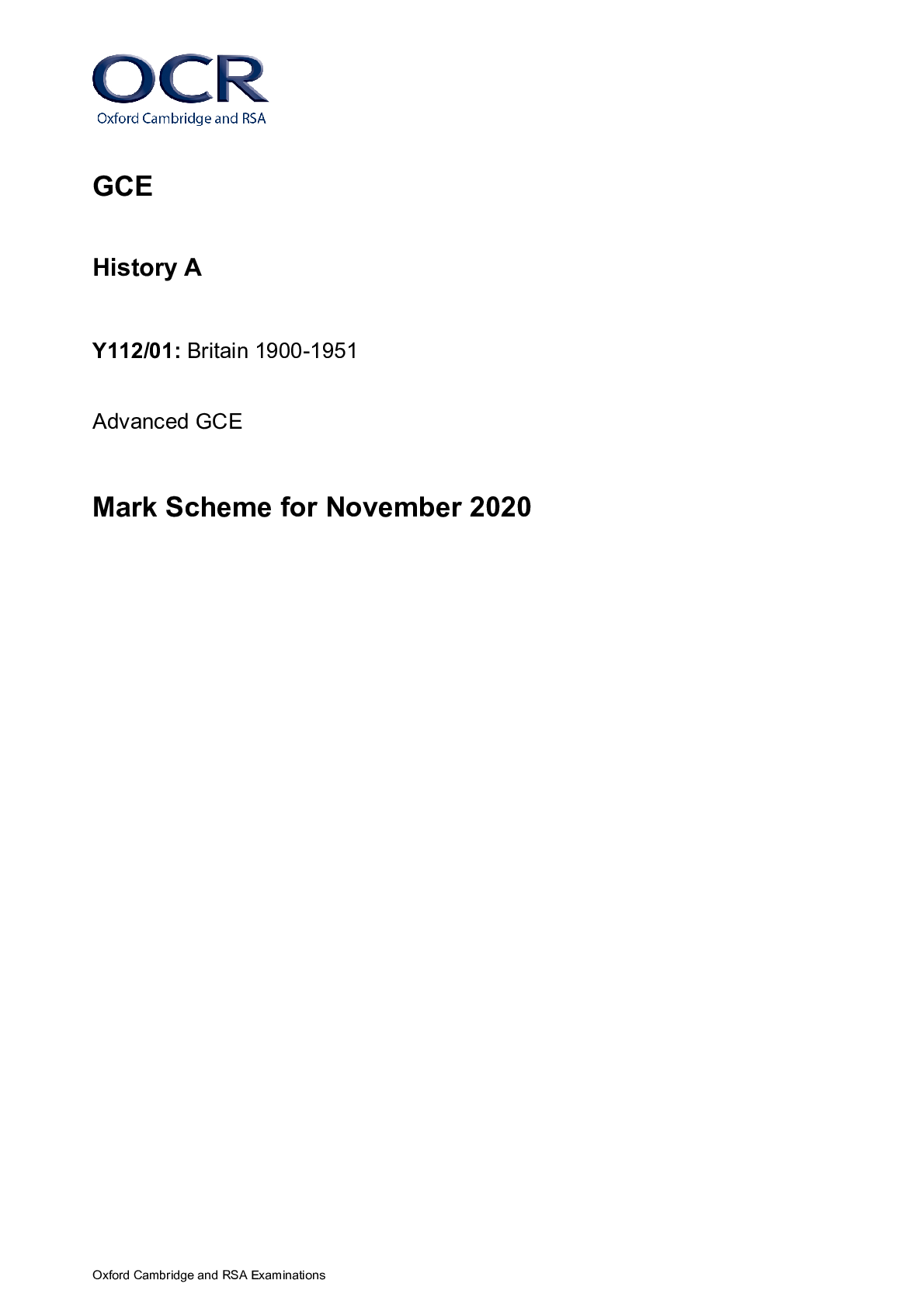
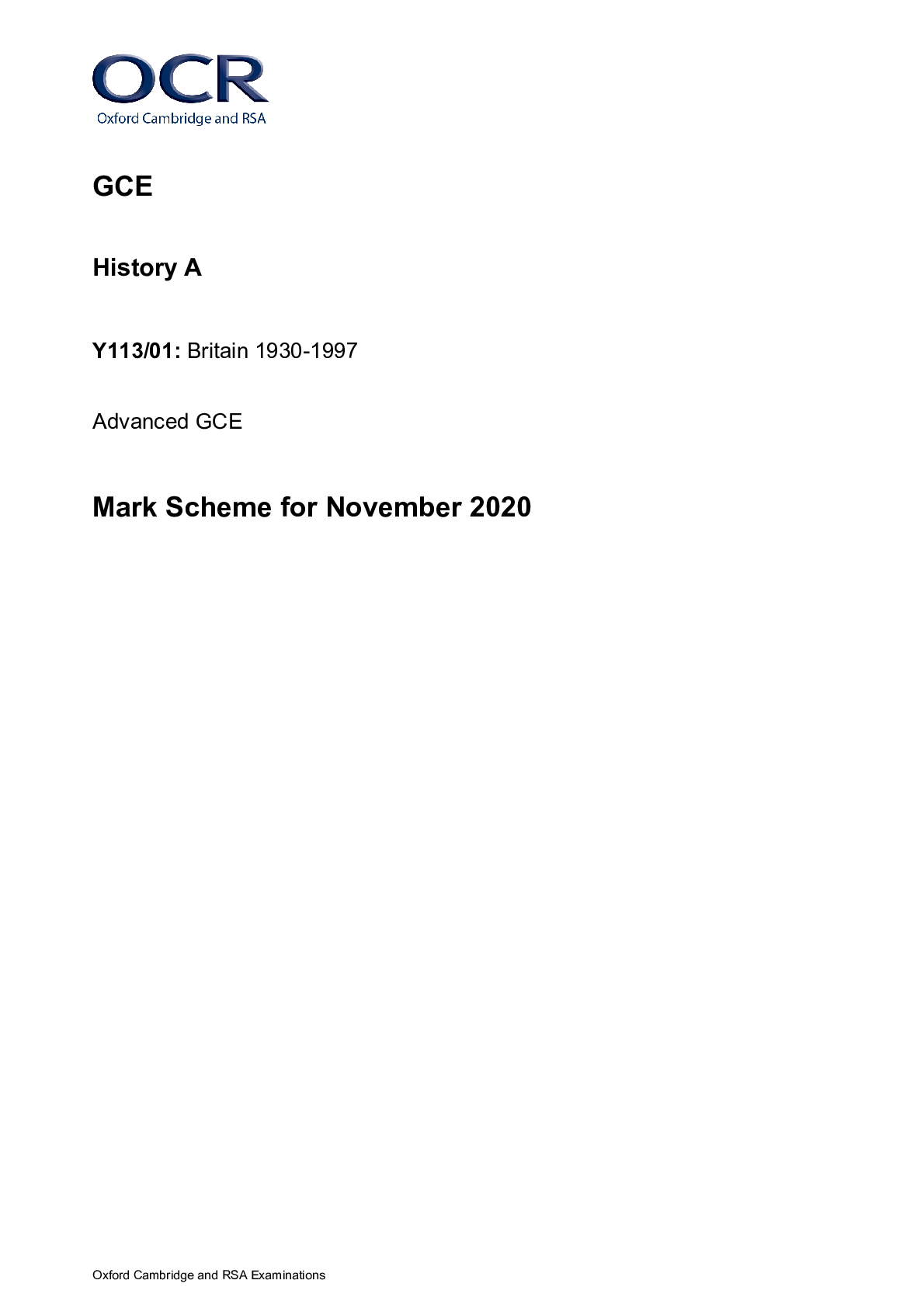
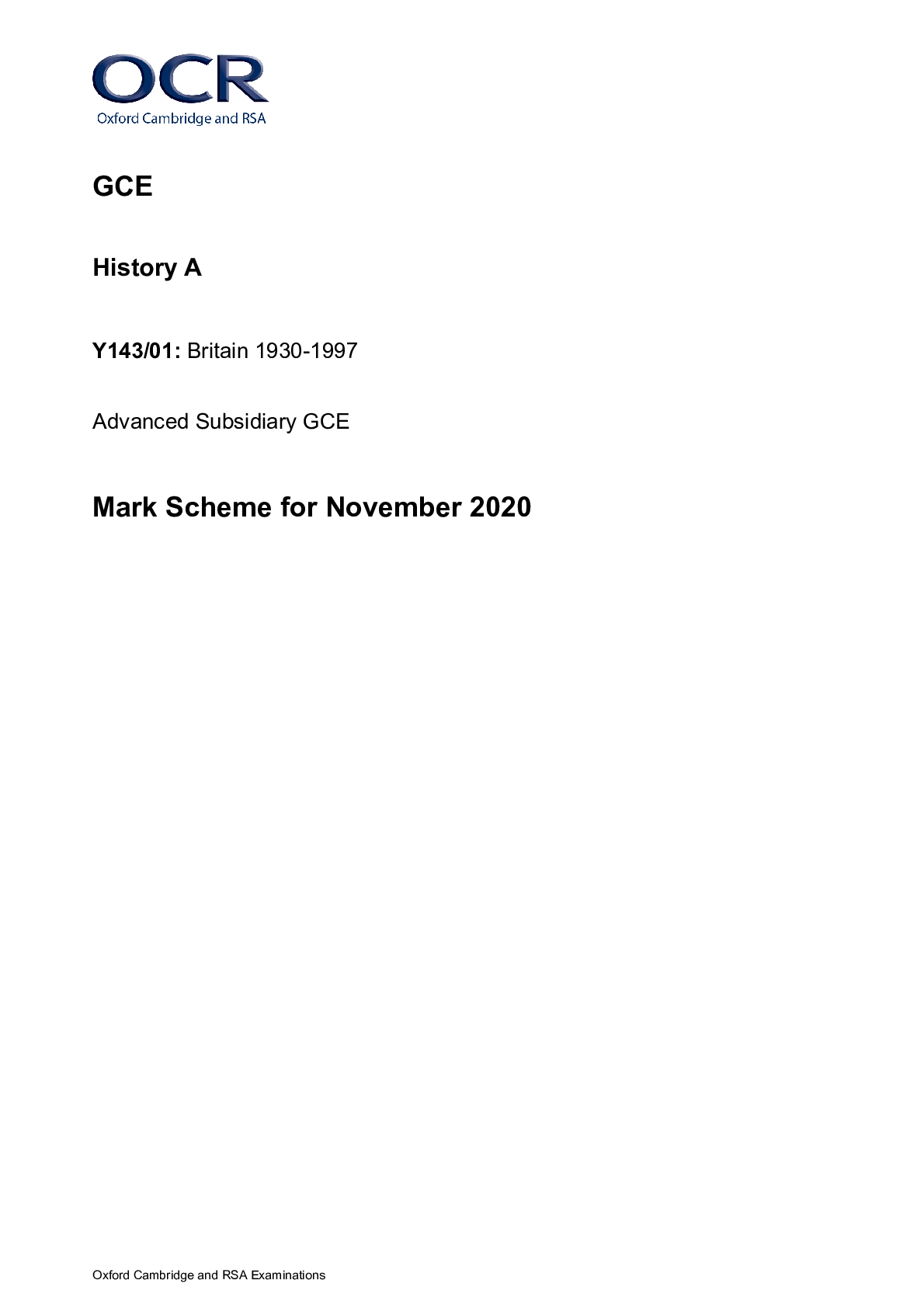
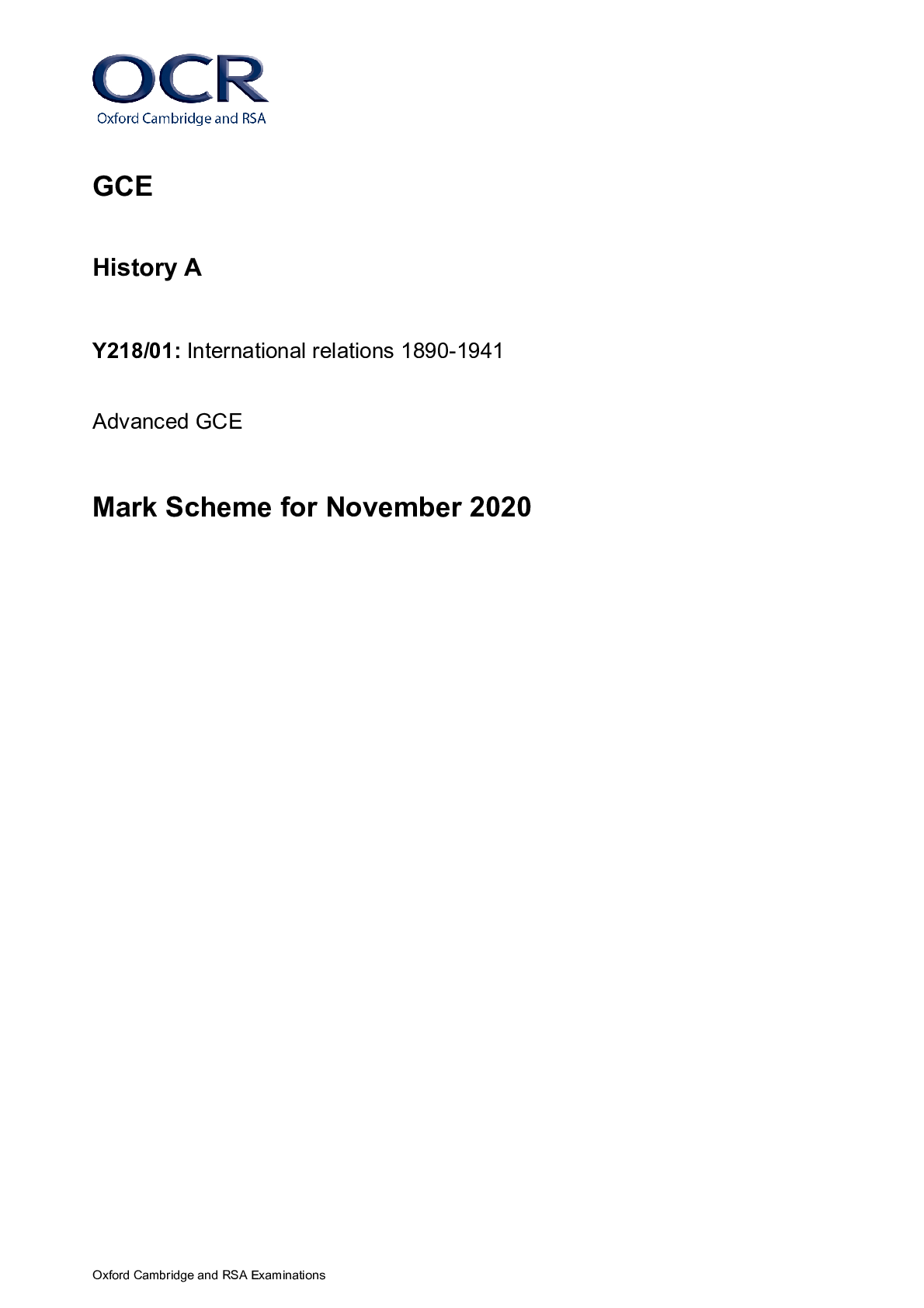
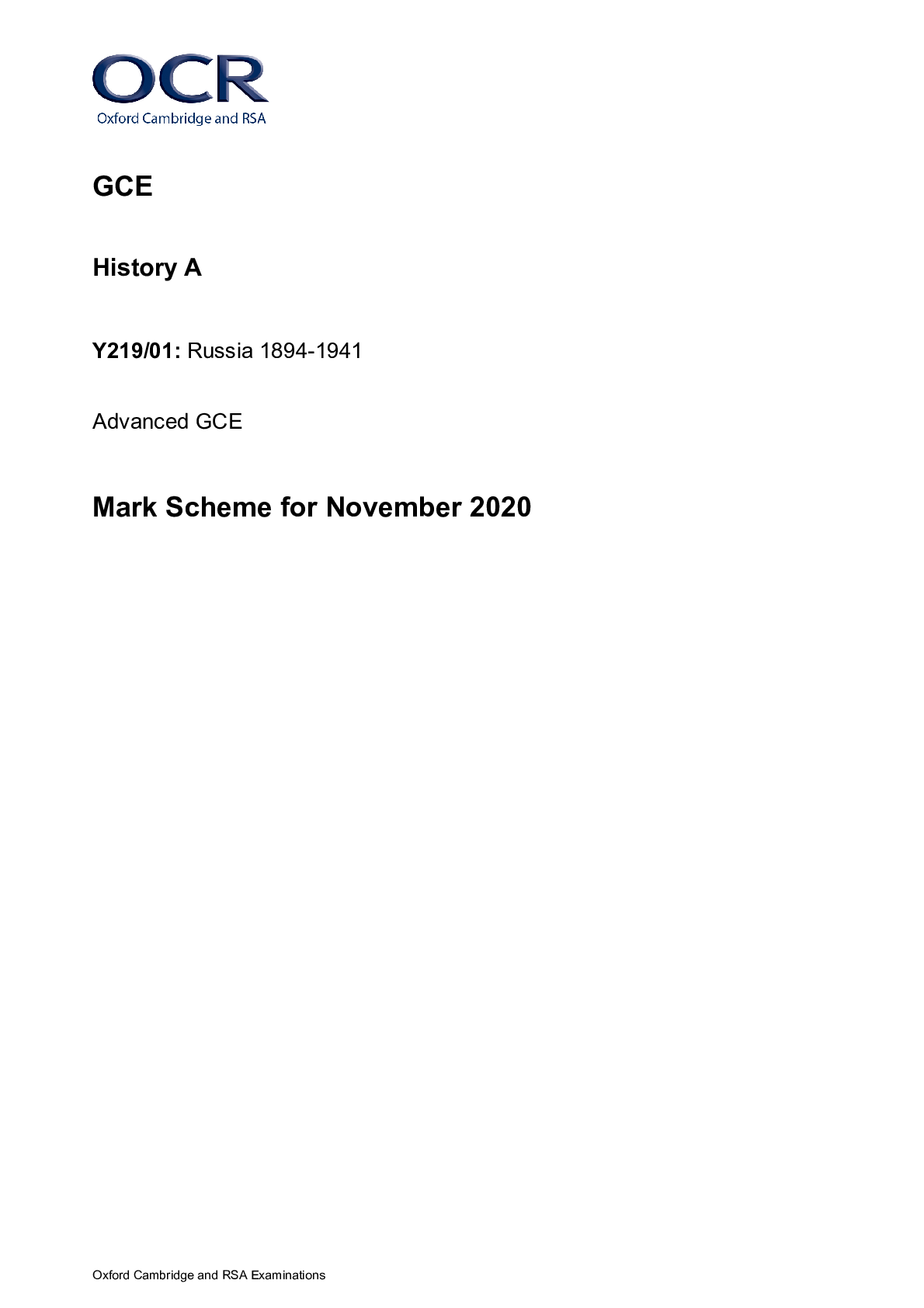
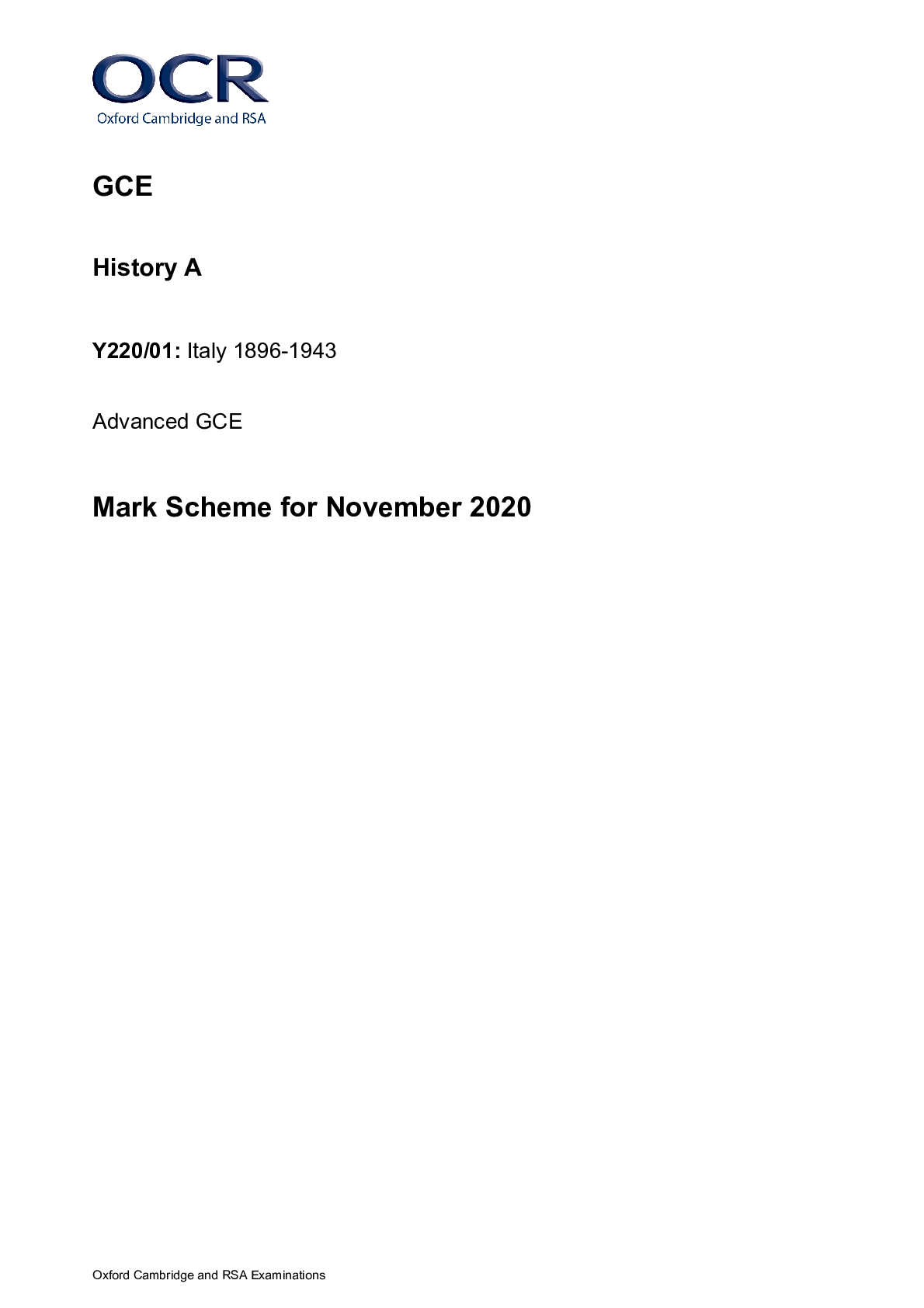
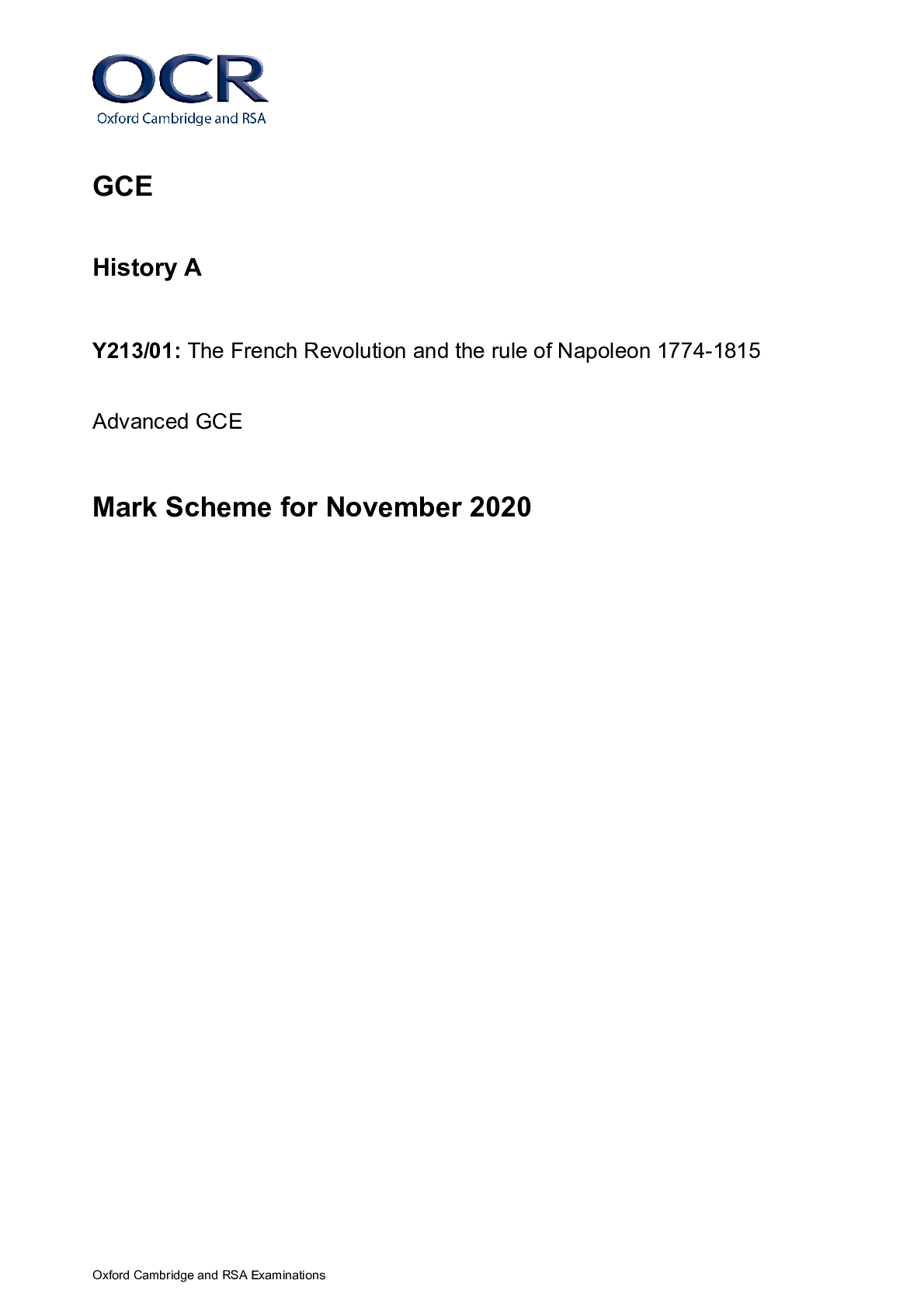
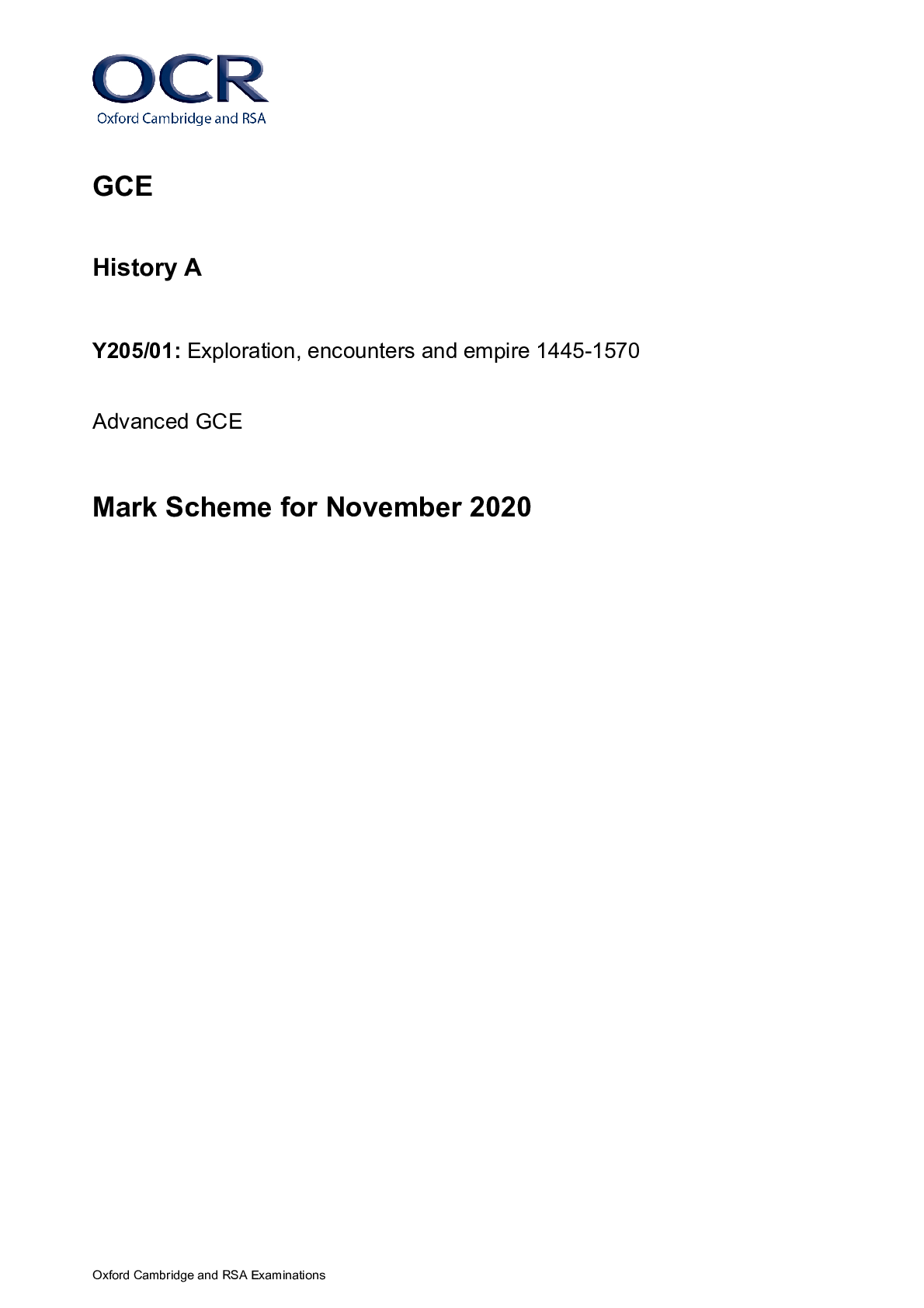
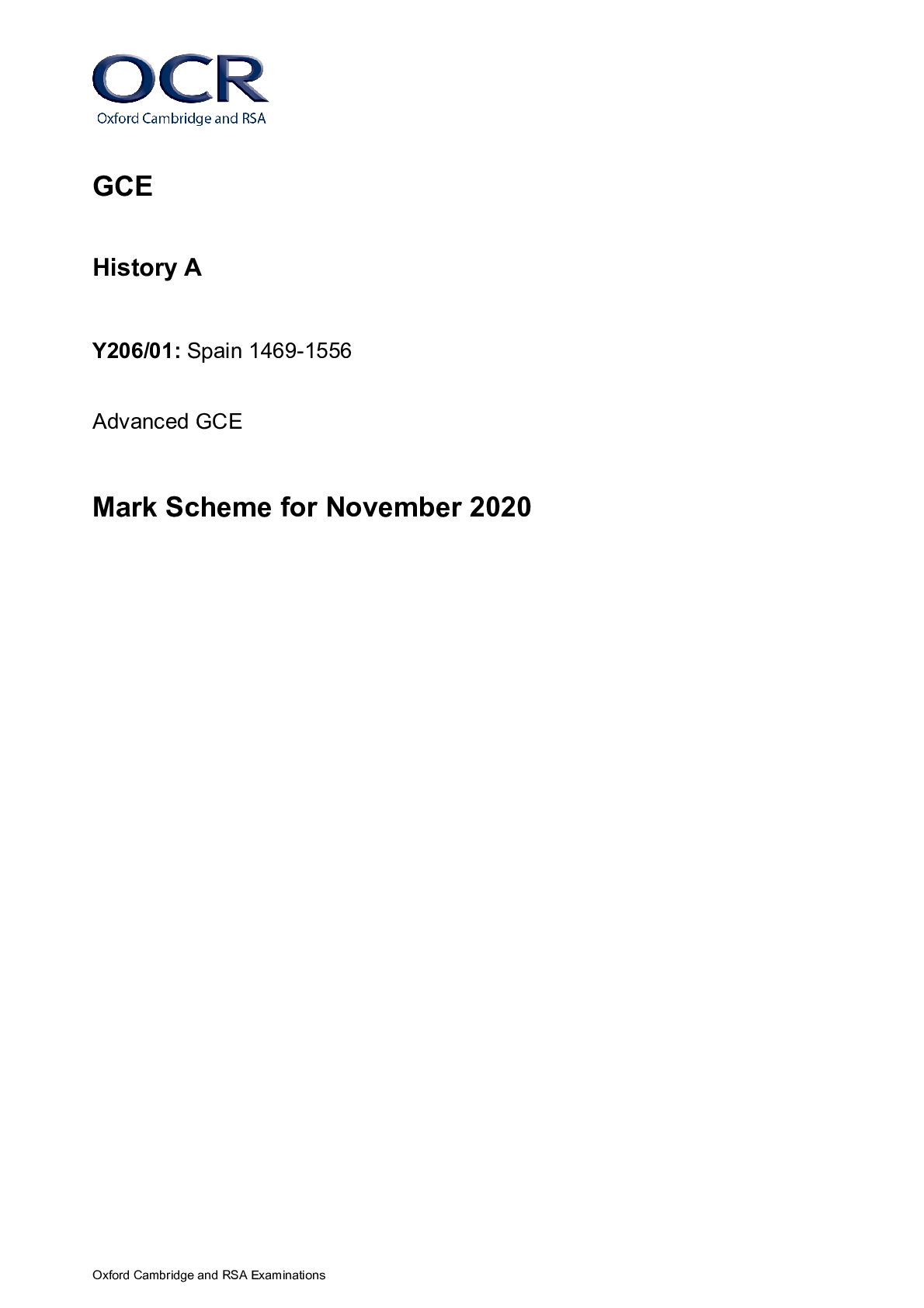
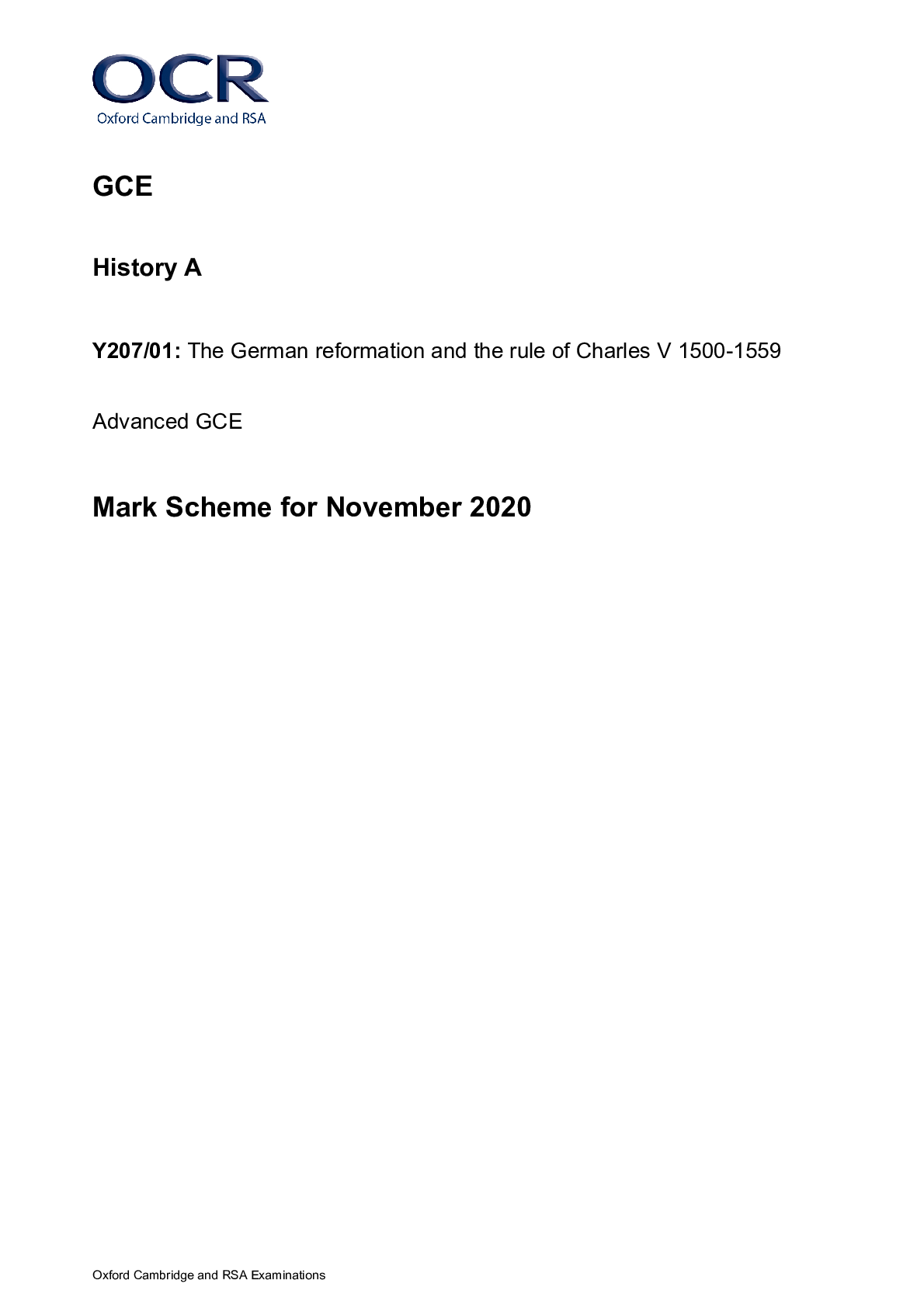
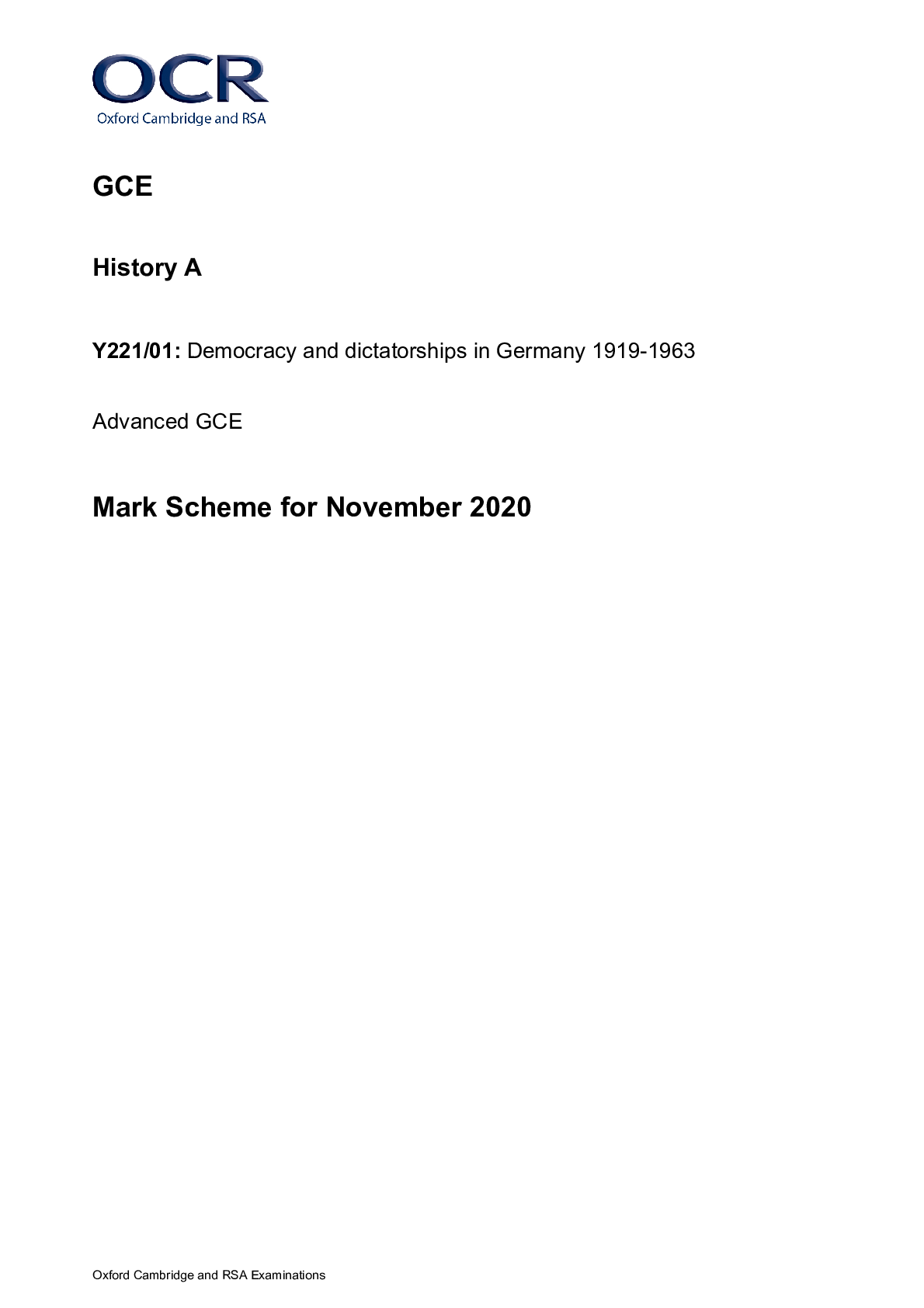
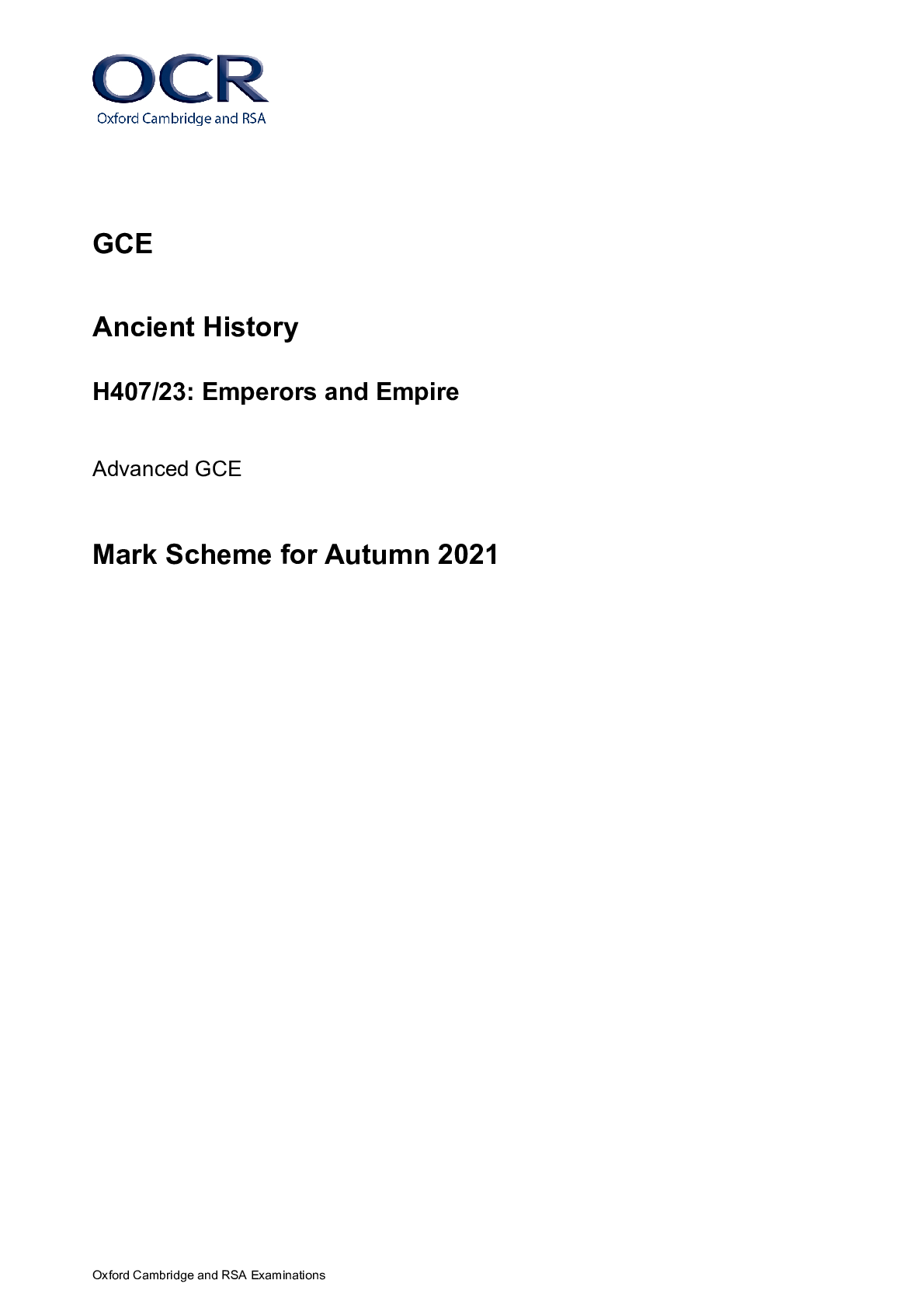
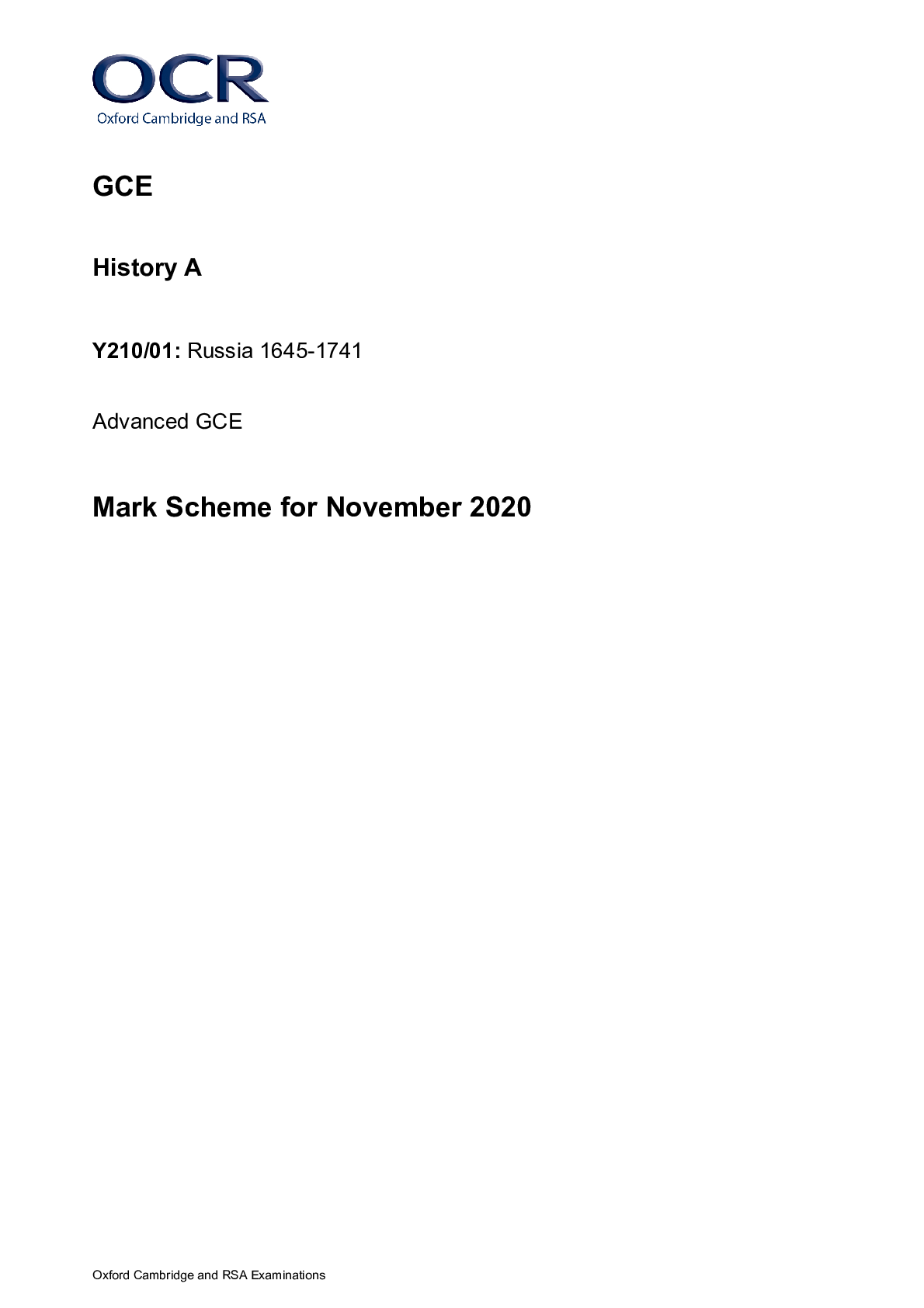
.png)

